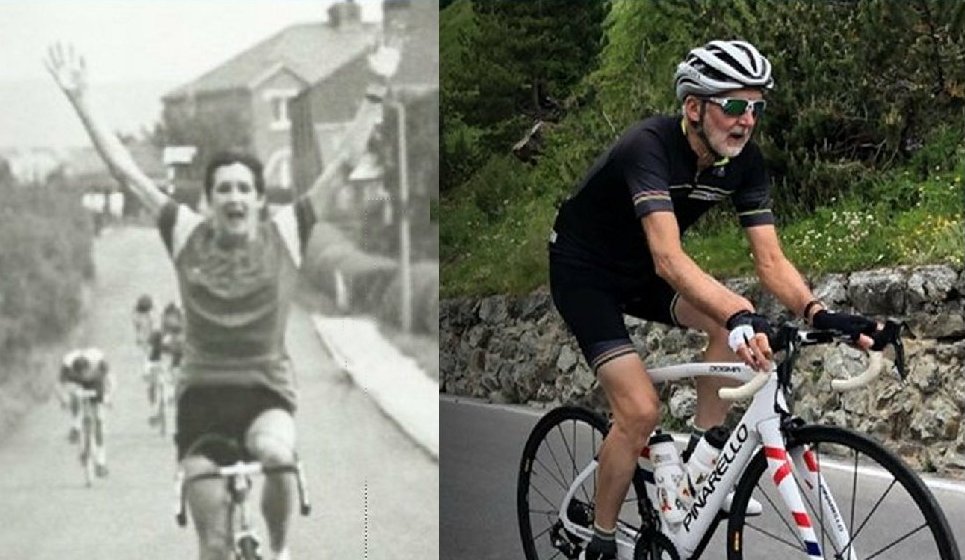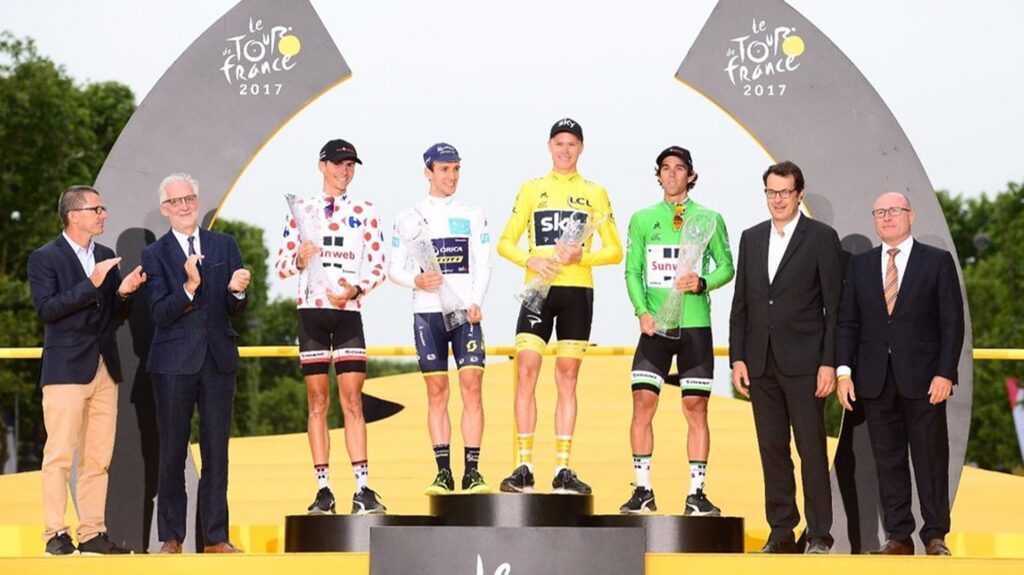Brian Cookson, the man who rescued British Cycling and then spent four years tackling the drugs problem which threatened to engulf the sport at world level, lifted the lid on the politics of international sport for Stumperlowe Probus Club’s latest presentation.
His talk was entitled “Going Full Cycle – the life of Brian,” which will also be the title of his long awaited autobiography, should it ever reach fruition.
Brian, still cycling regularly at the age of 72, underlined his profound knowledge of the sport at every level when he spoke for over an hour without reference to a single written note. His story began with his own (modest, by his own admission) racing career as a teenager in Lancashire, and ended when, riding on the anti-doping ticket, he was elected to the top job in the world of cycling as president of the Union Cycliste Internationale, based in Switzerland.
There are almost certainly more football fans than cycling enthusiasts in Sheffield, so probably the best way to underscore the importance of Brian’s job is to describe him as the Sepp Blatter of cycling, the difference being that, whilst he failed to gain election for a second term, he at least emerged from the presidency with his reputation intact. Brian spent four years in the top job, living with his wife Siân in a flat overlooking Montreux, Lake Geneva and the Alps near the UCI headquarters at Aigle.
Brian explained: “When I decided to stand for election as president, I did so because the sport’s international governing body was in turmoil. Its credibility had reached rock bottom, thanks to the numerous doping scandals that had captured the attention of the world.
“The sport’s place in the Olympic Games had even been questioned. It was clear that major changes had to be made to the sport’s governance, and to achieve this it was equally clear that new leadership was needed.”
Brian had an impressive track record as president of British Cycling. When he took over in the mid 1990s, the national body was wracked by a series of controversies and close to bankruptcy. Only one Olympic gold medal had been achieved by a British rider in the previous 76 years (Chris Boardman in the individual pursuit at Barcelona in 1992).
The entire Board was removed on a vote of no confidence, and Brian was asked to take the chair, which he agreed to do for an interim period of one year. By the end of his tenure, 17 years later, British Cycling had been transformed with the help of lottery funding into an award-winning governing body. He received an OBE from HM the Queen in 2008 for services to cycling, and specifically his work in a voluntary capacity in leading the restructuring and subsequent resurgence of British Cycling.
Brian’s day job prior to his retirement was in local government, ending his career as executive director (regeneration) for Pendle Borough Council, whilst his career ladder in the world of cycling administration started when he was elected road racing secretary of the BCF Lakeland Division (which covered north Lancashire) in 1981. He was division chairman from 1993 to 1997 and was elected to the BCF racing and executive committees from 1984. He represented cycling on the British Olympic Association from 1996 to 2013.
Brian qualified as a UCI international commissaire (race referee) in 1986, working on events such as the Tour of Britain and other major stage races in Eastern Europe, Germany, Spain, France, Australia and South Africa. He was elected to the UCI management committee in 2009, and was appointed president of the body’s cyclo-cross commission before becoming president of the road commission.
Brian, who was due to fly out early the next morning for two weeks’ cycling in the Majorcan sunshine, waived the speaker’s honorarium to which he was due and instead asked us to donate it to the Rayner Foundation, the body which over the last three decades has raised more than a million pounds to help young British riders break into the notoriously tough world of Continental cycle racing.



